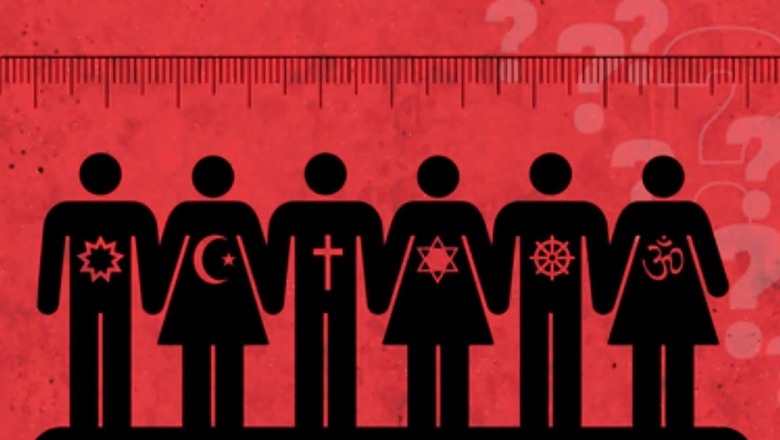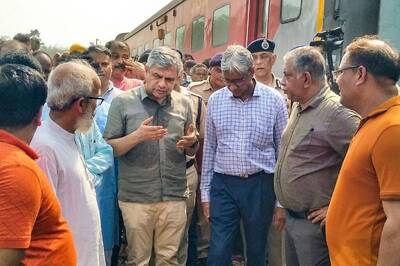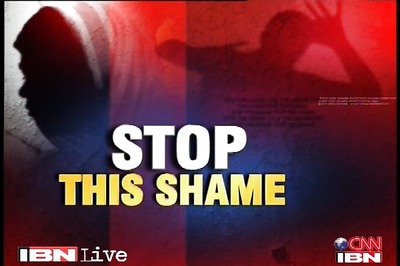
views
Senior member of the All India Muslim Personal Law Board (AIMPLB) and prominent Sunni cleric Maulana Khalid Rasheed Farangi Mahali has launched a drive after Friday prayers in Uttar Pradesh against the proposed Uniform Civil Code (UCC).
Speaking to CNN-News18 on the row, the Maulana called the Uniform Civil Code an act that would adversely affect the Personal Law Board which, he said, is based on Sharia principles.
On July 5, the AIMPLB, after holding an hours-long meeting in Lucknow, handed over a draft of the Uniform Civil Code to the Law Commission, listing its objections to the proposed legislation and highlighting the rights enshrined for the community in the Constitution.
Listing out the reasons for dissent, he said: “Uniform Civil Code is nothing but a political gimmick. It is not practical and will certainly leave an adverse effect not only on Muslims but people of all religions in India. Muslim Personal Law board is founded on Sharia principles and any changes or modifications made to it will not be tolerated by Muslims. Hence, I urge people to come forward and register their protest against UCC in order to turn down the proposal.”
When asked why the Maulana had said in one of his recent statements that UCC would have adverse effects on individuals from all religions, he said: “You can’t have the same set of rules for different religions. What a person belonging to Muslim community follows is far different from the religious practices followed by a person belonging to the Jain, Christian or Sikh community. How can you have the same set of rules for all?”
The AIMPLB and Jamiat Ulama-e-Hind were first to register their protest against UCC while Jamaat-e-Islami Hind refrained from commenting. Questioned about the divided opinion among Muslim organisations, the Maulana said: “I think it’s time to unite and fight as one. AIMPLB, I believe, has representation of almost all big and small Muslim organisations and when AIMPLB has taken a stand on any issue, it is considered the collective stand. The Law Commission has asked the point of view of the general public and organisations on the issue of UCC, following which AIMPLB and other Muslim organisations submitted the draft in order to register their protest.”
The Maulana said they had appealed to Imams of all mosques to make ‘namaazis’ aware of Muslim personal law. “Sharia law is the foundation of Muslim personal law and hence, no human can make any modifications to it. AIMPLB has also launched its own QR code that will be placed outside mosques. People can scan the code using their smartphones and register their protest against UCC. Their reaction will be registered on the Law Commission’s site. For those who don’t want to follow personal law, there is also an option of a Special Marriage Act in our law. Hence, there is no need for UCC.”
In the course of the conversation, the Maulana was also asked about RSS general secretary Dattatreya Hosabale’s latest interview to News18 where he said UCC was part of the Indian Constitution and suggested by its architects. He had also said that it was not only about polygamy or other social practices of Muslims but more about social and legal matters related to maintenance, inheritance, and succession.
Responding to Hosabale’s statement, the Maulana said: “Our Constitution gives the right to each and every citizen of India to follow any religion or culture. I want to highlight the fact that even before India attained its freedom from the British clutches, the leaders have always assured us that there will be no interference in Muslim personal law. Mahatma Gandhi, during the famous round table conference held in 1931 in London, had assured that no law would interfere in Muslim personal law.
“Despite this, the matter of UCC is being raked up in order to gain political mileage. AIMPLB has strongly opposed the law and the board has also decided that there will be no protest against UCC on the roads. We have appealed to common people to register their protest against UCC and I think people are smart enough to understand their rights.”


















Comments
0 comment